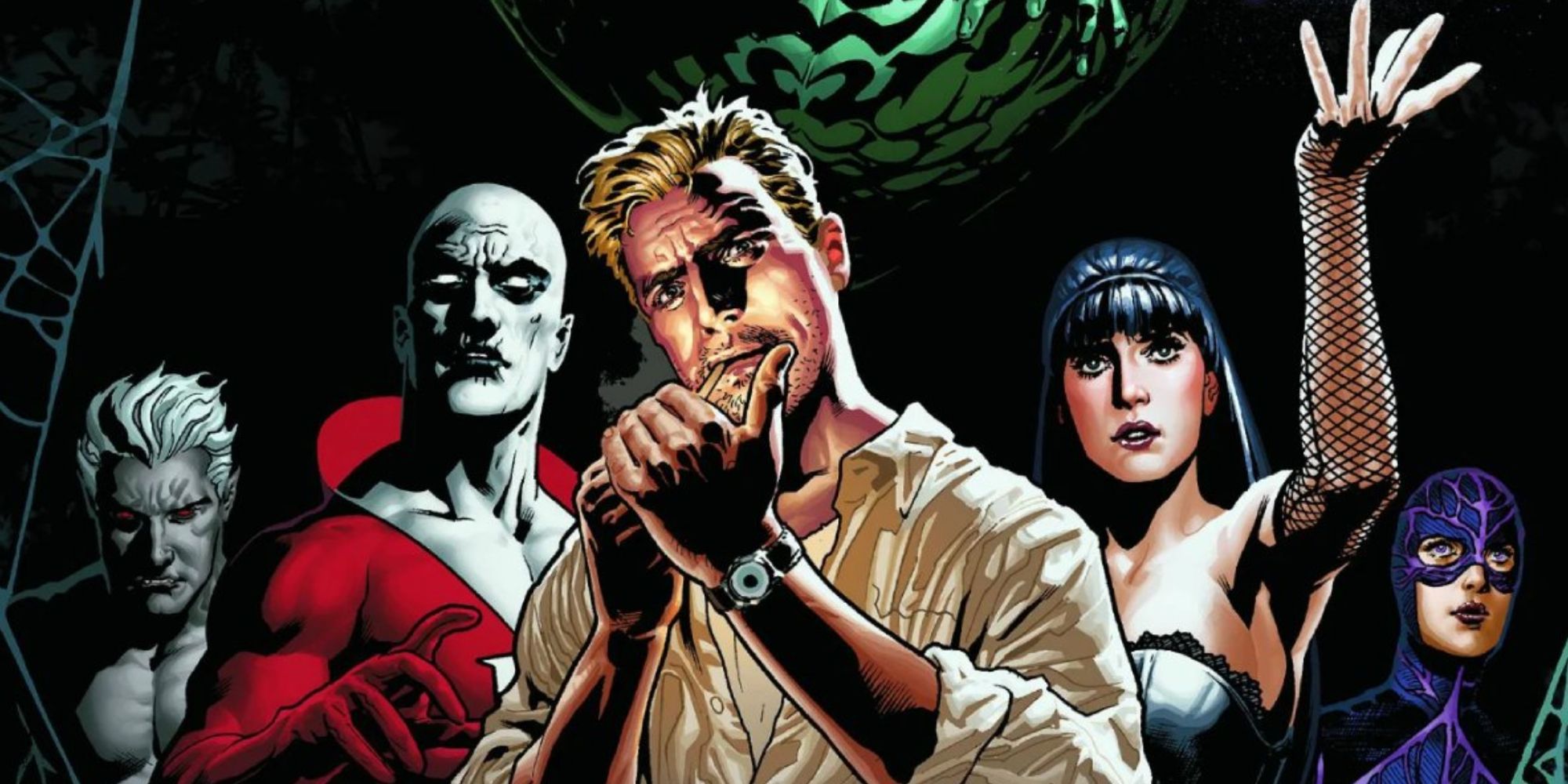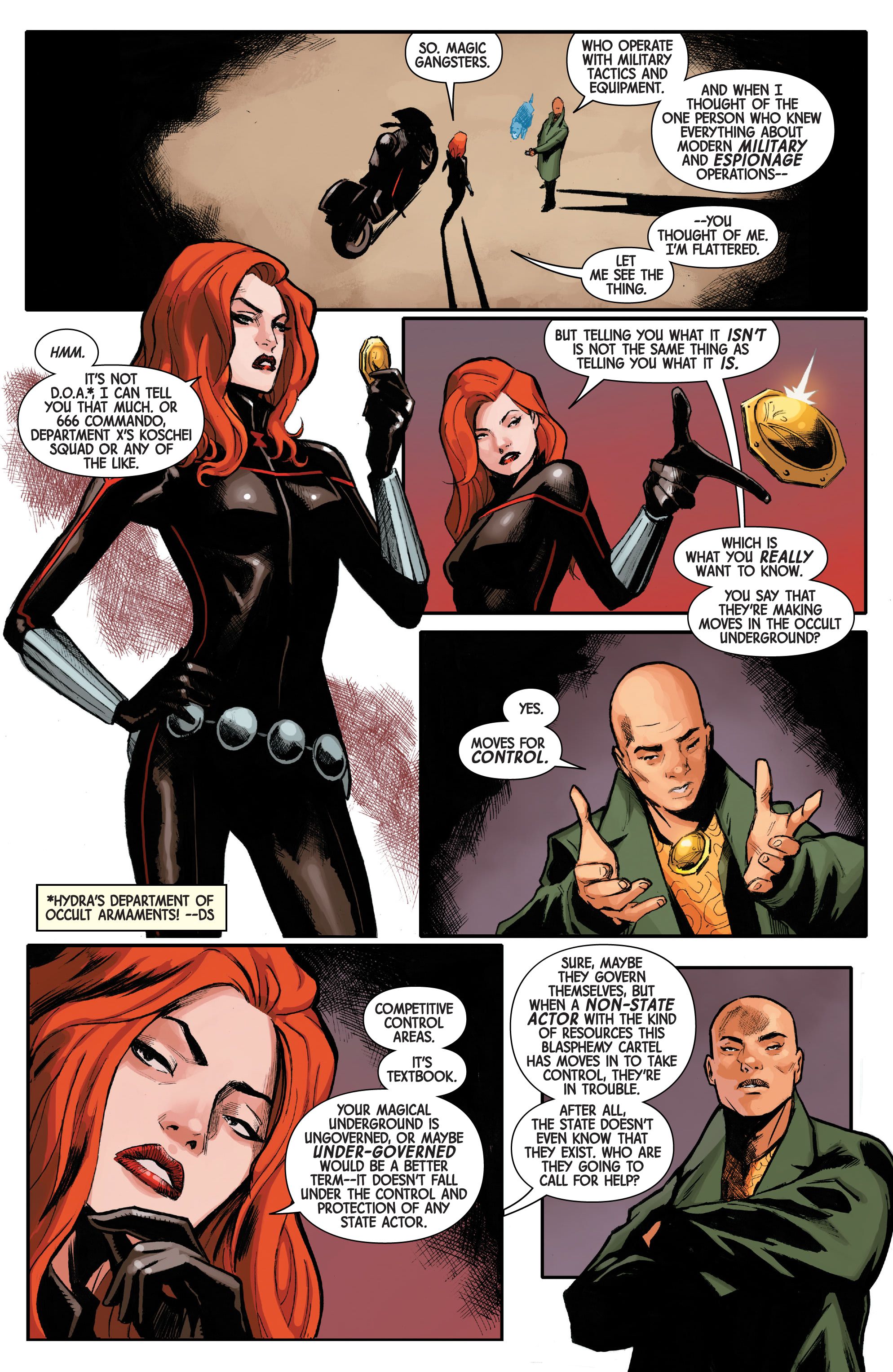Spoilers ahead for Strange #6!
Both Marvel and DC have extensive magic-based heroes and villains, but Marvel’s magic community is far weaker than DC’s. As Wong, Doctor Strange’s assistant, makes his way through the magical underworld of the Marvel Universe in Strange #6, he gets an unlikely assist from Black Widow—who then makes an interesting observation about the magic-wielding community. Ironically, Widow’s assessment proves why DC’s magic-based heroes are stronger.
Magic-based characters have been integral parts of the DC and Marvel Universes since their inception. In the early 1940s, fans were more than thrilled to read about the exploits of sorcerers such as Doctor Fate and Sargon, or avenging ghosts like the Spectre. When the Marvel Age of Comics began in 1961, magic was not far behind because in 1963, Stan Lee and Steve Ditko introduced Doctor Strange to the Marvel Universe. Strange’s arrival led to an explosion of magic users in comics and when the Comics Code Authority guidelines were loosened in the 1970s, it opened the door for even more supernatural characters, such as Dracula and Ghost Rider. In the 1980s, Alan Moore introduced Constantine. Constantine was unlike any other magic user in the DC Universe at the time. He was a working class magician who relied on his wits and sorcery. Even though both publishers have a robust roster of magic- and supernatural-based characters, Black Widow identifies the franchise with the strongest list.
Strange #6, by Jed MacKay and Lee Garbett, reveals that The Blasphemy Cartel, who has taken advantage of the chaos unleashed in the wake of Doctor Strange’s death, has begun consolidating their hold on Earth’s magical community. Wong, desperate for answers, begins searching through the magical haunts and dives of New York City. After stopping at the Bar With No Name, Wong meets with Black Widow. Upon noticing the military-like tactics the Cartel was employing, Wong asked for Black Widow, reasoning that she knew more about such things thanks to her espionage background. Widow and Wong discuss the Cartel’s machinations, and Widow tells Wong that Earth’s magic community is “under governed.” She says that when sorcerers and magicians need help, they have no one to turn to, except for the Sorcerer Supreme.
Black Widow is spot-on because Marvel’s magic users are far less organized, and subsequently weaker, than those hailing from DC. Marvel’s magic users almost always operate on the fringes, with only a few select characters opting to participate in teams (some notable examples include the Scarlet Witch and Strange himself). By staying on the edges, Marvel’s magic users alienate potential allies and leave themselves open to attacks by groups such as the Blasphemy Cartel. In contrast, DC’s magic-using community is much more organized, and even receives official recognition. Justice League Dark, consisting of John Constantine, Zatanna and other magic users, is an officially recognized offshoot of the main Justice League. The team operates in the basement of the Hall of Justice, implying endorsement by the League and their sponsors. If Marvel’s magic community wishes to survive the ravages of the Blasphemy Cartel, they will need to take a page out of the playbook of Justice League Dark and the DC Universe.
Not all supernatural characters in the Marvel Universe operate on the fringes, especially in recent years; for example, Blade was recently appointed Sheriff of the Vampire Nation by the United Nations. Yet, Marvel still has a ways to go in creating a community of magic users as strong as DC’s.
Strange #6 is available now from Marvel Comics.


